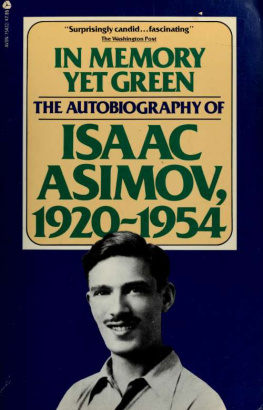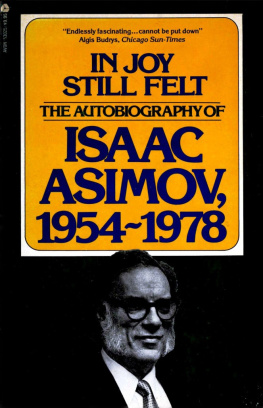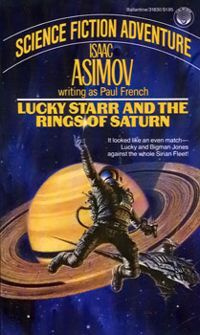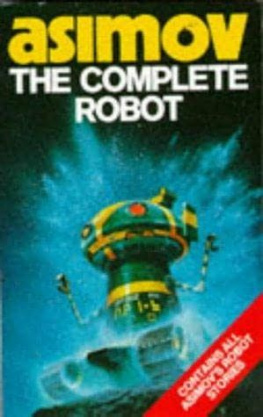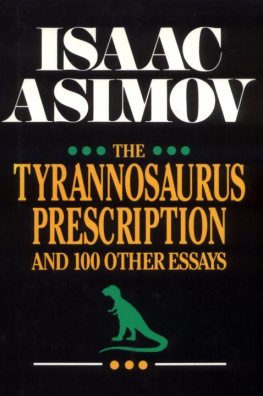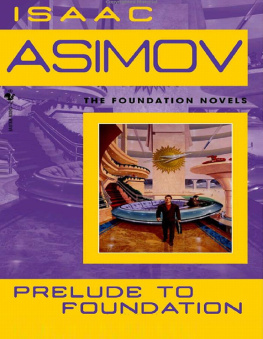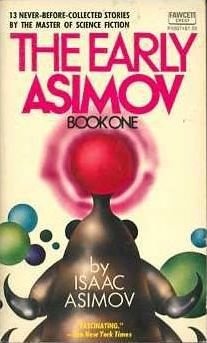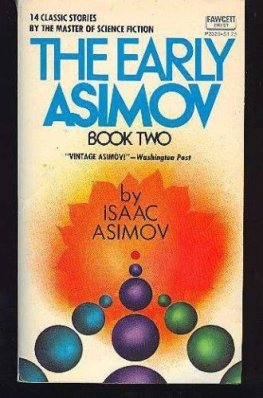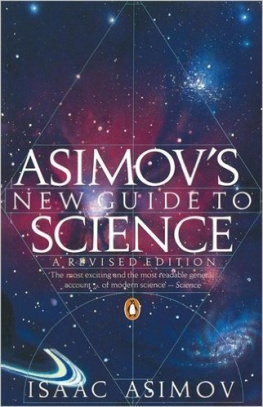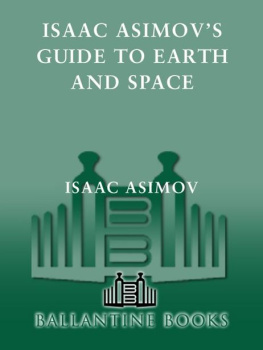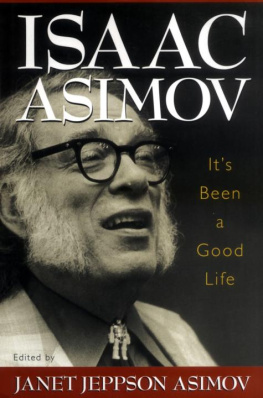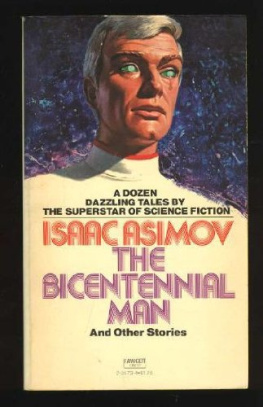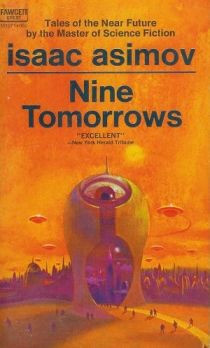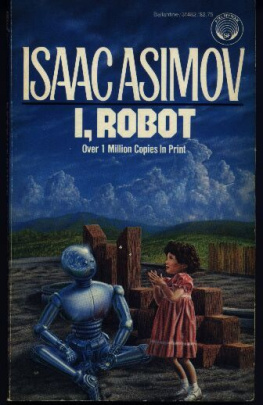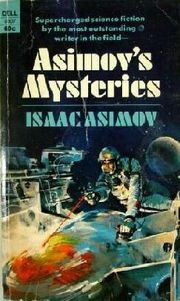This book made available by the Internet Archive.
Vll
611 621 631 643 664 680
yog yiy
Introduction
I remember once, when I was twenty-nine and beginning to feel that, really, I was on the threshold of old age, I began for the first time to wonder if I ought to write an autobiography.
The point against doing so was that nothing of any importance had ever happened to me. The point in favor of doing so was that I was a pretty good writer and that I might weave such a spell of words that no one would notice that nothing had ever happened to me.
On the whole, though, I decided against it because I had other things to do, and because I could detect no real craving for it on the part of the public.
Now a great deal of time has passed and I am actually beginning my autobiography, and a monstrously long one it will be. This is it.
What has changed? It still remains a fact that nothing of any importance has ever happened to me and that it will take all my writing skill to obscure that point.
Why, then, am I doing it? Ah, at twenty-nine, I had never published a book. Now I have published two hundred. There seems to be a widespread belief (according to my editor, the beauteous Cathleen Jordan) that no one can possibly write two hundred books of both fiction and nonfiction, in dozens of categories at all age levels, without being, somehow, an interesting person.
Besides, it might be helpful to ambitious young people or to curious not-so-young people to see How I Did It.
I pointed out that this had been exactly my idea in writing The Early Asimov (Doubleday, 1972) and Before the Golden Age (Double-day, 1974). In each of these books I included copious autobiographical passages. Cathleen said, however, that those passages had pertained almost exclusively to my literary life and she wanted a well-rounded tale that included my nonliterary life as well.
I said, "What nonliterary life? How can a person turn out two hundred books and have a nonliterary life?"
Fortunately, she explained it carefully to me so that I could understand what she meant.
She said, "Shut up, Isaac, and get to work."
So here it is.
In memory yet green, in joy still felt, The scenes of life rise sharply into view. We triumph, Time's disasters are undealt, And while all else is old, the world is new.
Anon.
PART I
Out of 'Russia and into Brooklyn
My Birthplace
To begin with, I was not born in the United States, but in Russia. At the time I was born, the Russian Empire had already died and was replaced by a variety of Soviet Socialist Republics, the three chief being the Russian Soviet Federated Socialist Republic (R.S.F.S.R.), the Belorussian Soviet Socialist Republic (Belorussian S.S.R.), and the Ukrainian Soviet Socialist Republic (Ukrainian S.S.R.). The old-fashioned names for these were Great Russia, White Russia, and the Ukraine, respectively.
Two years after I was born, these units, together with others, were combined to form the Union of Soviet Socialist Republics (U.S.S.R.), which took in virtually all the territory of the old Russian Empire except for some far western provinces lost in the course of World War I and the Russian Revolution.
Strictly speaking, then, I was not born in Russia, nor in the U.S.S.R. either, but in the Russian S.F.S.R. (Great Russia). The place of my birth was just sixteen kilometers (ten miles) east of the border of the Belorussian S.S.R. That was where my parents lived and their parents for an indefinite number of generations.
This was in itself rather unusual since my family was Jewish and, in theory, Jews were not allowed to live on the holy soil of Great Russia, which had been the Russia of Ivan IV (the Terrible) and Peter I (the Great).
Beginning in 1772, however, under Catherine II (the Great), Russia had annexed large tracts of what had made up the vast, amorphous, and anarchic kingdom of Poland. Until that time, White Russia and the Ukraine had been Polish and the Poles had allowed Jews to live there. Indeed, they had welcomed them as a useful middle class of merchants. The Russians, naturally, annexed the Jews with the territory.
The Russian Tsars did not try to drive the Jews out; they remained a useful middle class. They were confined, however, to the ex-Polish territories of White Russia and the Ukraine, as well as to the Baltic provinces that had been annexed from Sweden, and these constituted "the Jewish Pale."
In a nation as inefficiently ruled as Russia, however, Jews could
drift beyond the pale now and then and, every once in a while in a fit of rigor, they would be pushed back.
In the time of Nicholas I, who ruled Russia from 1825 to 1855, things got a little sticky. Nicholas was a traditionalist, who was determined to maintain the autocracy in Russia (and in as much of the rest 'of Europe as he could manage) against the rising tide of democracy that had been unleashed by the French Revolution. Among other things, small deviations from the traditional Jewish Pale were to be corrected and Jews living outside it were to be moved back in.
That struck my ancestral town for, as I said, it was sixteen kilometers east of White Russia and therefore sixteen kilometers outside the pale. What happened then my father told me, for late in his life he began (at my request) to write me letters telling me what he could remember of his ancestors and of his life in Russia. 1
Apparently, there was at the time a "good landowner" (and for Jews to remember a Russian landowner as "good" must have meant he was saintly indeed) who owned many square miles of land on both sides of the White Russian/Great Russian border. On hearing that Jewish settlements beyond the White Russian border must be broken up, he carried the border sign from a position west of the town to a position east of the town, thus transferring it into White Russia and allowing the Jews to remain.
This was clearly illegal, but Tsar Nicholas, autocrat though he might be, was far away in St. Petersburg, 415 miles almost due north of my birthplace, and the landowner was on the spot. Since autocracies are usually tempered by inefficiency, bribery, inertia, and any of a dozen other ameliorative influences (or they would be unbearable), it was the immediate power that prevailed and not the Little Father far away.
The town I was bom in is named Petrovichi, pronounced ' peh-TRUV-ih-chee." I didn't know about the final i until I was an adult, for my father, although he spelled it as I have just given it, when I asked him, always pronounced it "peh-TRUV-ich."
When I was a child, he would talk of it frequently, saying, "Back home in Petrovichi-" He never said, "Back home in Russia-" I always assumed that Petrovichi was a huge city or perhaps a whole province, and later on I was quite disappointed to find that it was a small hamlet of no consequence whatever.

